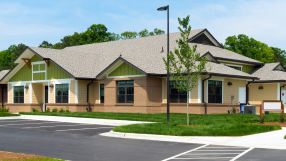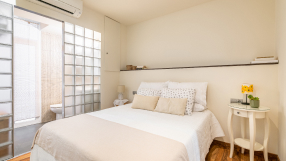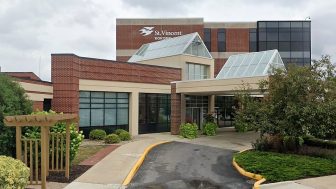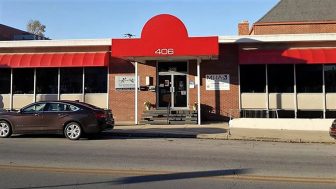First City Recovery Center
317 W Jefferson St
Kokomo, IN 46901
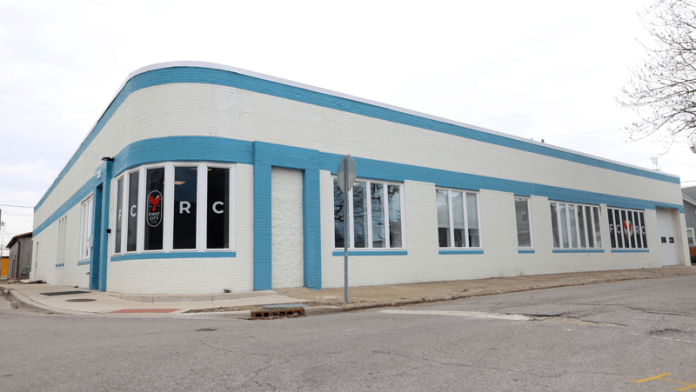
About First City Recovery Center
Located in Kokomo, Indiana is a drug and alcohol rehabilitation facility called First City Recovery Center. This center takes a comprehensive approach to care and will connect you and other adults to a treatment plan designed specifically for your substance use disorder or mental health needs.
You’ll be supported through their inpatient rehab or the outpatient treatment programs. Depending on your struggles, you may benefit from medical detox, a treatment that allows you to safely wean your body off of its chemical dependency.
As you exit detox, you’ll work with trained and licensed staff as you move through a treatment plan tailored to your needs. Often, this plan will include counseling services, support through peer meets, and specialized therapy sessions that empower you to get to the root cause of your struggles.
As you complete your treatment at First City Recovery Center, you can also be connected to sober living options that will allow you to continue your recovery in a safe and supportive environment.
Amenities
Addiction Treatment Programs
Teen & Adolescent Program
Each young adult program in Indiana covers a wide range of addictions. Programs offer evidence-based therapies to treat alcohol, heroin, opioid, cocaine, benzodiazepine, and marijuana addictions, among others.Adult Program
An adult program in Indiana offers recovery services to those who have become addicted to drugs or alcohol. Treatment may include inpatient or outpatient services, medication, and a variety of therapy methods.Alcoholism
If you choose an alcohol rehab in Indiana, you’ll progress through four stages of recovery. Rehab begins with treatment initiation, then moves to early abstinence, then maintaining abstinence, and finally advanced recovery. The outcome is a new, healthy sober lifestyle.Men's Rehab
Men’s rehab in Indiana allows for greater participant engagement by offering same-gender treatment sessions. Often, men feel more comfortable in these settings, so they are more willing to share and receive support.Women's Rehab
Women’s rehab in Indiana can be very beneficial for participants. These programs offers services that are designed specifically for women, which can help participants overcome the unique challenges they face.Opioid Treatment
During opioid rehab in Indiana, addiction specialists help individuals stop abusing prescription drugs or other opioids. Comprehensive treatment includes inpatient rehab, behavioral therapy methods, and alternative therapies. Many rehabs in Indiana include detox and medication assisted treatment.Cognitive Behavioral Therapy (CBT)
Cognitive behavioral therapy in Indiana helps those struggling with addiction deal with triggers (something that compels a person to seek their substance of choice). This method teaches individuals healthy ways to handle situations without turning to substance use.Drug Rehab
For long-term recovery from drug addiction, drug rehab in Indiana is often key. This treatment gives individuals who are struggling with a substance use disorder the tools to manage their disorder and achieve long-term sobriety.Senior Drug & Alcohol Rehab
Elderly rehab in Indiana uses many of the same treatment methods as general population programs, but with a focus on challenges of aging. Methods often include 12-step programs, behavioral therapy, and motivational interviewing.LGBTQ Friendly Rehab
Women’s rehab in Indiana can be very beneficial for participants. These programs offers services that are designed specifically for women, which can help participants overcome the unique challenges they face.Rehab For Veterans
Treatment professionals at Veteran’s rehab in Indiana understand the challenges that often lead Veterans to addiction. They are able to deliver specialized recovery treatment that meets the unique needs of individuals with a military background.Fitness Therapy
Fitness therapy is an evidence-based complementary approach to addiction recovery and mental health care. Based on mounting scientific evidence of the benefits of physical activity in improving mood, enhancing clients’ sense of wellbeing, and decreasing depression and anxiety, fitness therapy encompasses a wide spectrum of intensities, from gentle yoga, qigong, and tai chi to weight training, kickboxing, and other highly physical activities.Levels of Care
Accreditations

LegitScript

Joint Commission

NAATP
Insurance
Contact First City Recovery Center

